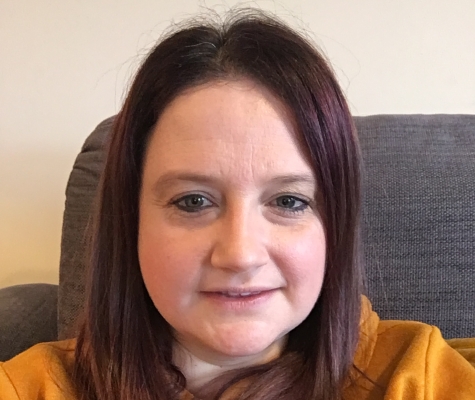Posted By: MMHA
2 minute read

To the mum who puts on a brave face day after day when inside you are falling apart — please seek support. You are amazing and you deserve to be happy.
Before I had my son, I had a really naive view of mental illness, and I think I believed I was immune to it. I had managed a stressful job as a solicitor for years. How hard could it be to raise a baby?
But things started to go wrong after a 46-hour labour which ended with my son being whisked away from me to be checked if he was okay. Everyone had seen him but me. This was meant to be the happiest moment of my life and yet I’d never felt so alone.
Over the following weeks, I pretended to the world that I was fine and enjoying motherhood. But in reality, I was confused and depressed. This was eventually picked up by a midwife who referred me to my local perinatal mental health team. However, I really struggled to engage with the psychological support being offered to me. They wanted me to go on antidepressants, try talking therapies, see a psychiatrist and community psychiatric nurse, but I refused them all.
For me, the stigma was too great and the terms of the help too intimidating. So I continued to suffer. The pain inside me getting so bad that I just wanted to die. But then, one day, at around six months after my son’s birth, I realised enough was enough and I called the perinatal health team and told them all about my suicidal thoughts.
Provided with the time, support and medication I needed, I slowly began to recover, with plenty of bad days as well as good days along the way. By the time my son was one and a half I was discharged from the perinatal mental health team, and by the time he was two I had come off all my medication.
Now, I look back and wish that I, as well as some of the professionals I saw during those first six months, had done things very differently. That’s why I’m retraining to be a mental health nurse, working in co-production and have set up a local charity for parents experiencing perinatal mental illness. I hope all of this will truly help people through their difficult journeys because I know I nearly didn’t come through mine and my son very nearly lost his mummy.
The MMHA commissioned Centre for Mental Health to explore just how much of a challenge the pandemic has placed on maternal mental health and the services that support women and families. Leanne responded to the report findings by saying:
The parents with maternal mental health problems that we support, have missed vital in-person contact and found this exceptionally hard – whether it’s family, friends, wider support networks or baby groups. Also, not having face to face appointments with professionals and the challenges that brings – especially the impact of communication on the phone that you don’t get face to face – has been really difficult and can make recovery much harder for some.